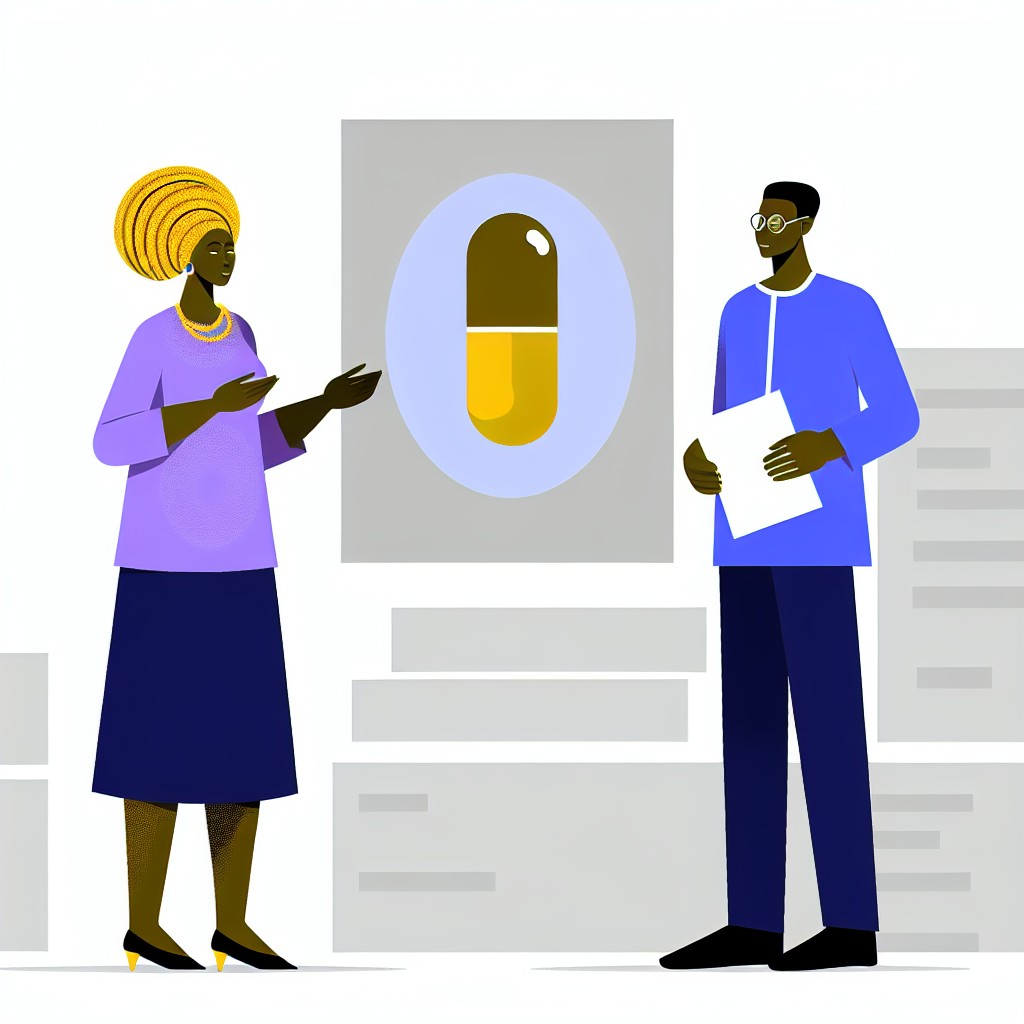Maintaining optimal cobalt levels is essential for overall health and well-being.
Introduction
Cobalt deficiency is a condition where the body lacks an adequate amount of cobalt.
Cobalt is an essential mineral needed for various bodily functions.
Common symptoms associated with cobalt deficiency include fatigue.
Other symptoms are weakness, anemia, and neurological issues.
What is cobalt?
Cobalt is a trace mineral essential for the human body’s proper functioning.
It plays a crucial role in various physiological processes.
The body requires cobalt in small amounts for optimal health.
Definition and role of cobalt in the body
- Cobalt is a naturally occurring element found in the Earth’s crust.
- It is often found combined with other minerals such as copper and nickel.
- In the body, cobalt is a component of vitamin B12, also called cobalamin.
- Cobalt is essential for red blood cell production and nerve function.
- It participates in the metabolism of fatty acids and amino acids for energy and cellular function.
Importance of cobalt in red blood cell and nerve function
- Cobalt is a key part of vitamin B12 needed to form red blood cells.
- Red blood cells carry oxygen throughout the body to tissues and organs.
- Without enough cobalt, red blood cell production decreases, causing anemia.
- Cobalt also maintains healthy nerve function and communication.
- It helps synthesize neurotransmitters, the messengers between nerve cells.
Cobalt deficiency can cause anemia, nerve damage, and other health issues.
Therefore, ensuring adequate cobalt intake through diet or supplements is important.
This supports overall health and well-being effectively.
Cobalt deficiency can lead to various symptoms that affect overall health.
It is essential to recognize these signs early to prevent complications.
Common Symptoms of Cobalt Deficiency
- Fatigue: Feeling unusually tired and lacking energy is a common symptom of cobalt deficiency.
- Weakness: Muscles may feel weak, and physical exertion can become challenging.
- Neurological Issues: Cobalt deficiency can affect nerve function, causing numbness, tingling, and nerve pain.
Recognizing these symptoms early is crucial.
Cobalt plays a vital role in various body functions.
Health Effects Associated with Cobalt Deficiency
Cobalt deficiency can significantly impact overall health.
It affects various systems in the body.
- Decreased Red Blood Cell Production: Cobalt is essential for producing red blood cells. Deficiency can cause anemia.
- Impaired Nerve Function: Cobalt is crucial for nerve function. Deficiency leads to neurological issues like numbness and tingling.
- Reduced Energy Levels: Since cobalt is involved in energy production, deficiency causes fatigue and weakness.
- Poor Cognitive Function: Cobalt is necessary for brain function. Deficiency impairs cognitive abilities.
- Skeletal Abnormalities: Cobalt deficiency affects bone health and can lead to conditions such as osteoporosis.
Addressing cobalt deficiency promptly is essential.
Dietary changes and supplementation may be necessary to avoid long-term health consequences.
Discover More: From Deficiency to Health: Nigerian Foods That Fill Mineral Gaps
Dietary sources of cobalt
When it comes to ensuring you are getting enough cobalt in your diet, there are several foods you can incorporate to boost your intake of this essential mineral.
List of foods rich in cobalt:
- Seafood: Fish such as salmon, tuna, and mackerel are excellent sources of cobalt.
- Nuts: Almonds, walnuts, and cashews contain significant amounts of cobalt.
- Leafy green vegetables: Spinach, kale, and Swiss chard are all rich in cobalt.
- Whole grains: Foods like brown rice, quinoa, and oats provide a good dose of cobalt.
- Dairy products: Milk, cheese, and yogurt are also sources of cobalt.
- Meat: Beef, chicken, and pork are high in cobalt as well.
Significance of including cobalt-rich foods in daily diet to prevent deficiency
Since cobalt is essential for the production of red blood cells and the proper functioning of the nervous system, it is crucial to include cobalt-rich foods in your daily diet to prevent deficiency.
By consuming a variety of foods that are naturally high in cobalt, you can ensure that your body has an adequate supply of this vital mineral.
Incorporating seafood, nuts, leafy green vegetables, whole grains, dairy products, and meat into your meals can help you meet your daily cobalt requirements.
Furthermore, if you follow a vegetarian or vegan diet, it is important to pay extra attention to your cobalt intake.
Plant-based sources of this mineral may be less bioavailable compared to animal-based sources.
Maintaining a balanced diet that includes a variety of cobalt-rich foods is key to preventing cobalt deficiency and supporting your overall health and well-being.
Discover More: Addressing Phosphorus Deficiency: Foods and Remedies
Risk factors for cobalt deficiency
- Poor dietary intake: A diet low in cobalt-rich foods can increase the risk of deficiency.
- Gastrointestinal disorders: Conditions like Crohn’s disease can impair cobalt absorption.
- Vegan or vegetarian diet: Plant-based diets may lack adequate sources of cobalt.
- Pernicious anemia: Cobalt is essential for the synthesis of vitamin B12, which is crucial for red blood cell production.
- Malabsorption disorders: Conditions like celiac disease can interfere with the absorption of cobalt from the diet.
- Pregnancy and breastfeeding: Increased demands for cobalt during pregnancy and lactation can lead to deficiency.
Importance of monitoring cobalt levels in individuals at risk
Early detection helps identify deficiency before symptoms develop.
Addressing cobalt deficiency early prevents serious health complications.
Monitoring allows tailored treatment plans to meet specific needs.
Tracking cobalt levels helps assess the effectiveness of dietary modifications.
Maintaining optimal cobalt levels is essential for overall health and well-being.
By identifying and addressing risk factors for cobalt deficiency and monitoring cobalt levels in at-risk individuals, healthcare providers can help prevent and manage this potentially serious condition.
Gain More Insights: Magnesium Deficiency Signs and Top Foods to Include

When it comes to diagnosing cobalt deficiency, healthcare providers use several key methods.
Blood tests
A common way to diagnose cobalt deficiency is through blood tests.
These tests measure the levels of cobalt in the bloodstream.
They determine if cobalt levels are below the normal range.
Symptoms analysis
Healthcare providers also analyze the symptoms an individual experiences.
Common symptoms of cobalt deficiency include fatigue.
Other symptoms include weakness and pale skin.
It is important to seek medical advice if you believe you have symptoms of cobalt deficiency.
A healthcare provider can determine the underlying cause of your symptoms.
They will also provide the necessary treatment to address the deficiency.
Learn More: Selenium Deficiency: Key Symptoms and Dietary Remedies
Treatment options for cobalt deficiency
In cases where cobalt deficiency is diagnosed, you must address the issue promptly.
Timely treatment helps prevent potential health complications.
Several options can increase cobalt levels in the body.
These options also help alleviate symptoms associated with deficiency.
Description of potential treatment options
- Cobalt supplements: One primary treatment is using cobalt supplements.
- Supplements come in forms like capsules or liquid.
- You can easily incorporate them into your daily routine.
- Dietary changes: Another effective way is to make dietary changes.
- Including cobalt-rich foods like seafood, nuts, and whole grains boosts cobalt naturally.
- Addressing underlying causes: It is crucial to identify contributing factors.
- Work with a healthcare professional to find root causes and develop a treatment plan.
Importance of working with a healthcare professional
Cobalt supplements and dietary changes can help manage deficiency.
However, it is essential to seek guidance from a healthcare professional.
This ensures the treatment approach fits your specific needs.
A professional such as a doctor or dietitian can assess cobalt levels.
They can identify underlying conditions and provide personalized recommendations.
Working with a healthcare professional ensures safe and appropriate treatment methods.
This helps avoid potential risks related to cobalt supplementation or dietary changes.
Regular monitoring of cobalt levels and symptoms is crucial for treatment success.
Collaborating with a healthcare professional helps you take proactive steps for health.
Recognizing Symptoms and Maintaining Healthy Cobalt Levels
Throughout this section, we explore the symptoms of cobalt deficiency.
It is crucial to recognize signs such as anemia, fatigue, and neurological issues.
By adding cobalt-rich foods like seafood, nuts, and leafy greens to your diet, you can prevent deficiencies.
Maintaining adequate cobalt levels supports optimal health and well-being.
Cobalt plays a vital role in the body’s overall function.
Understanding deficiency symptoms allows early intervention and treatment.
A balanced diet is key to fulfilling your cobalt needs for a healthy, thriving body.




